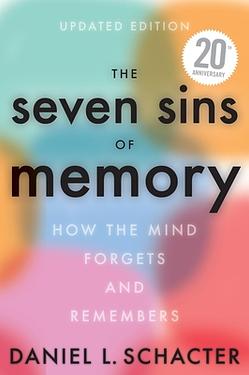內容簡介
內容簡介 By one of the world's foremost psychologists, a groundbreaking and award-winning study updated for the 20th anniversary with new research that delves into the complex behavior of memory Twenty years ago, The Seven Sins of Memory offered the first framework that explained common memory vices--and their surprising virtues. Now, in this updated edition, Daniel L. Schacter revisits his groundbreaking research with the twenty-first century's cultural trends and scientific discoveries. How does our ever-increasing reliance on Google, Instagram, and other websites harm our mind's ability to store and retrieve memories? How has repeated exposure to "fake news" and other false statements increased our bias and made it easier for us to think these statements are true? Exploring the memory miscues that occur in everyday life--absentmindedness, transience, blocking, misattribution, suggestibility, bias, and persistence--Schacter delves into the striking scientific research, giving us a glimpse of the fascinating neurology of memory. Together, the stories and the scientific results provide a new look at our brains and at what we more generally think of as our minds.
作者介紹
作者介紹 DANIEL L. SCHACTER is the William R. Kenan Jr. Professor of Psychology in the Department of Psychology of Harvard University. He has been elected to the National Academy of Sciences and received numerous awards for his research, including the Award for Distinguished Scientific Contributions to Psychology from the American Psychological Association and the Fred Kavli Distinguished Career Contributions Award from the Cognitive Neuroscience Society. He is the author of many books on memory and neuropsychology, including Searching for Memory, which received praise as a New York Times Notable Book of the Year and won the American Psychological Association's William James Book Award, as did the first edition of The Sevens Sins of Memory. Schacter lives in Newton, Massachusetts.
